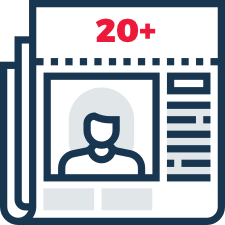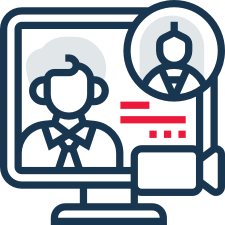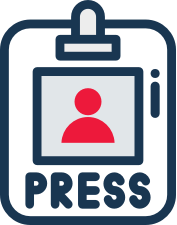Rarely do professionals include sleep in their daily task list. However, good sleep is one of the top factors in maintaining consistent high performance and the biggest driver of cognitive functions, including decision-making, memory and focus. Stick to a lifestyle that enables you to get seven to nine hours of sleep daily, or lets you catch up on sleep debt quickly. Sleep well to wake up refreshed and ready without carrying forward yesterday’s physical exhaustion. Mentally, too, you get to think and react quickly so that you are consistently effective on all days.
Food as jet fuel
Food is not just about grabbing breakfast on the go or ordering lunch online at work. What you eat and when you eat it shows in your energy levels and how sharp you feel. Experiment and find out what gives you that extra kick at different times. For some, the simple matter of replacing breakfast or lunch with a coffee works wonders. For others, it is about avoiding rice or pasta at lunch that leads to sleepy non-productive afternoons. Broadly speaking, processed foods and sugar lead to sudden energy highs and lows, and healthy greens and proteins work well to keep your energy constant and mind sharp.
Exercise for excellence
Exercise for professionals is not just about physical fitness, but to help unlock high energyimprove brain function and manage stress. If you are always running short of personal time, you could try a brisk 30-minute walk during lunch break, or walk to the next bus stop during your commute, or simply incorporate walks into your long work calls. With consistent exercise, notice the reduction in stress and anxiety, and the increase in mental ability and problem-solving skills at work. The improved physical health also helps you sustain and succeed over the long term.
Meditation for motivation
While food, sleep and exercise help you manage your energy levels, you still need motivation to work and chase goals. Motivation stems from the overall mental well-being and clarity about your needs and priorities. Use a mindfulness app or guided meditation, or do your own deep breathing and meditation exercises. How long you do it is less important than how consistently you follow this practice. The outcomes include reduction in stress, increased calmness and focus. This, in turn, enhances clarity and motivation to pursue your career goals with grace and confidence.
Peak performance
The state of flow or being in the zone is when you experience the highest level of productivity at work, being fully engrossed in the project and losing track of time. This is also known as deep work, where you block off two to four hours for a single task or project, switch off notifications and other distractions, and immerse in the most important project for the day. Set clear goals and break the project into bite-sized chunks to get into the flow faster. When you set up for deep work, you get more done in less time and with greater satisfaction.
Pomodoro productivity
The Pomodoro technique is about working in short bursts by setting a 25-minute timer to focus on a given task, followed by a five-minute break. This utilises the mind’s natural attention span of 20-30 minutes at a time before the concentration drops. Pick up a medium-sized task and start the timer. Knowing the short time limit helps you commit full attention and avoid procrastination. The break helps you avoid fatigue and boredom. For bigger projects, take a 15-20 minute break after every three or four Pomodoro cycles and see an uptick in your daily productivity metrics.
5-minute fire
Are you overwhelmed by a long task list? Set up a recurring five-minute timer on your phone. Pick up a small task, complete it within the time limit and strike it off your task list. Creating an urgency with the timer speeds up small tasks and helps overcome procrastination. Use it for e-mails, a quick call or to clean up your desk. Also use it to limit your coffee break or social media break. Use this habit daily to shrink your to-do list and free up mental space for greater productivity.
Organised to outperform
Organise your toolbox to boost productivity, where e-mails, data and physical items are your tools. For physical items, classify these into use or store. What you use is in front of you and the rest are stored out of sight in a logical fashion. For e-mails, set up specific time windows to check and respond. Use filters and folders to label, organise and prioritise e-mails. For data, a good system lets you recall and retrieve any piece in a few seconds, thus saving time and frustration multiple times a day. To easily access and back up all the data, check if your office offers a cloud-based storage system, or else pick a free solution like Dropbox, iCloud, OneDrive, Google Drive, etc. Then implement a logical system for categorising, naming and storing files in folders.
By using these techniques in your daily routine, you can unlock motivation, energy and productivity to break past your current career plateau and succeed.
LEARN TO SAY ‘NO’ FOR SUCCESS
1.ACCEPT LIMITS
Learn when to say ‘no’ at work and not get fired. Start by knowing your priorities to take better decisions on new requirements. Understand and accept your limitations in skills and abilities. Then evaluate new invitations and say ‘no’ where you need to stay focused on delivering the outcomes you promised.
2.POLITE & DIRECT
Respect the other person’s request and be polite in conveying your refusal: ‘Thank you for considering me, but I am currently committed to another priority and, hence, cannot take this up.’ Be prompt and clear in closing the query without leaving any misunderstanding or ambiguity about your refusal.
3.EXPLAIN BRIEFLY
Be mindful of your relationship and do not let your refusal sound brusque or rude. Offer a brief explanation like, ‘My team and I are working to close the audit by next Friday’s deadline and am unavailable till then.’ This helps the other person understand your priorities without making it personal.
4.OFFER SOLUTIONS
Whenever possible, and especially if you are speaking to your boss, suggest alternative solutions to the problem. Perhaps another colleague is suitable and available, or you are available on a different timeline. Offering solutions shows your willingness to contribute even if you cannot accept the request.
5.CONFIDENT & FIRM
Saying ‘no’ is difficult for most people. However, remind yourself that you need to say it to protect your time and energy for maximum effectiveness at work, and for your personal well-being. Stay confident with a good reason and remain polite, but firm, in reiterating your refusal, if pressured. Remain committed to managing your priorities effectively.
(THE WRITER IS FOUNDER & CEO, SALARYNEXT.COM, A JOB LOSS ASSURANCE COMPANY.)
Read More News on
(Catch all the Personal Finance News, Breaking News, Budget 2024 Events and Latest News Updates on The Economic Times.)
Subscribe to The Economic Times Prime and read the ET ePaper online.
Read More News on
(Catch all the Personal Finance News, Breaking News, Budget 2024 Events and Latest News Updates on The Economic Times.)
Subscribe to The Economic Times Prime and read the ET ePaper online.


 Get Unlimited Access to The Economic Times
Get Unlimited Access to The Economic Times






